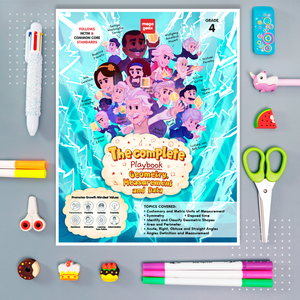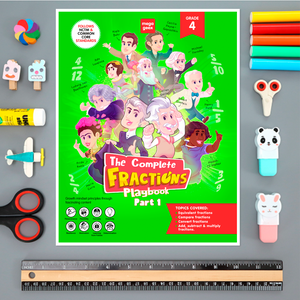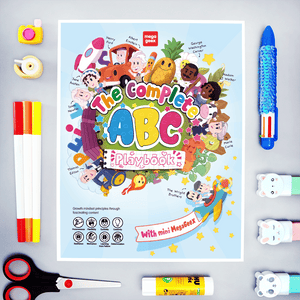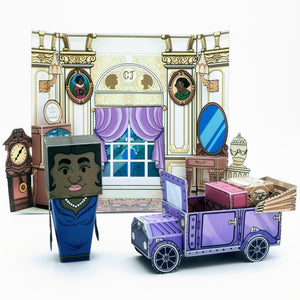Is Your Criticism Crushing Your Child’s Spirit?
Imagine you're walking a tightrope. On one side, there's the vast canyon of indifference, and on the other, the deep valley of overcriticism. Finding that perfect balance where your guidance truly uplifts and supports your child, rather than inadvertently crushing their spirit, is akin to walking this tightrope. It’s a challenge many parents face, often without realizing when their well-intentioned advice starts to do more harm than good.
Criticism, especially when it comes from a place of love and a desire to see one's child succeed, is a natural part of parenting. But there's a thin line—a very fine one—between helping your child navigate the complexities of growing up and inadvertently sending a message that they are not good enough. The impact of our words and actions on a child's developing psyche can be profound, shaping their self-esteem, their view of the world, and their place within it.
Understanding the Impact of Criticism
The words we speak into the lives of our children can linger in their minds, shaping their self-perception and influencing their path long into the future. It's essential, then, to understand the deep and lasting impact criticism can have on a child's psychological and emotional well-being. This understanding begins with distinguishing between constructive and destructive criticism and recognizing how each affects a child.
The Psychological Effects of Criticism on Children
Self-Esteem: Frequent, harsh criticism can erode a child's self-esteem, leading them to doubt their abilities and value. A child who hears more about what they're doing wrong than what they're doing right may begin to see themselves through a lens of inadequacy.
Anxiety and Stress: Children who are regularly criticized may develop heightened anxiety, especially in situations where they are being evaluated or observed. They might fear making mistakes, leading to stress that hampers learning and exploration.
Behavioral Issues: Negative feedback can sometimes lead to behavioral issues. A child seeking attention or attempting to assert some control in the face of critical feedback might act out in ways that are counterproductive to their development.
Constructive vs. Destructive Criticism
Constructive Criticism is aimed at improvement and growth. It's specific, focused on actions rather than character, and typically offered with suggestions for how to do better next time. Constructive feedback is enveloped in empathy, demonstrating to the child that their worth is not tied to their performance.
Destructive Criticism, on the other hand, often targets the child's character rather than their actions. It can be vague, leaving the child confused about how to improve, or it can be absolute, suggesting that the issue is intrinsic to the child and, therefore, unchangeable.
The Effect of Negative Feedback on Development
While it's crucial to correct misbehavior or guide a child towards better choices, the way this guidance is framed can significantly influence their developmental trajectory. Negative feedback, when not balanced with positive reinforcement, can lead children to focus on their failures rather than their potential for growth.
This focus on the negative can discourage risk-taking and experimentation, vital components of learning and development. A child wary of criticism may choose safety and invisibility over the natural trial and error process of acquiring new skills and knowledge.
Signs Your Criticism Might Be Harmful
Recognizing the signs that your criticism may be negatively impacting your child is a critical step in fostering a healthy, supportive family dynamic. Children might not always communicate their feelings directly, especially if they feel overwhelmed or discouraged. However, certain behaviors can signal that your approach to feedback might need adjustment. Here’s what to watch for:
Changes in Behavior
Withdrawal from Family Interactions: If a once talkative and interactive child becomes withdrawn or avoids spending time with family, it might indicate that they feel unsafe or anxious about potential criticism
Reluctance to Try New Things: A fear of failure can develop in children who anticipate negative feedback. This might manifest as a sudden reluctance to engage in new activities or take risks, stifling their natural curiosity and growth.
Emotional Signs
Increased Sensitivity or Defensiveness: A child who reacts strongly to even mild suggestions or becomes defensive over small issues may be feeling the weight of excessive criticism.
Signs of Low Self-Esteem: Frequent self-criticism, downplaying their achievements, or expressing doubts about their capabilities can be indicators that a child's confidence has been eroded by negative feedback.
Academic and Social Impacts
Avoidance of Schoolwork or Declining Grades: A child struggling with criticism may start to avoid homework or school projects out of fear of making mistakes, potentially leading to a decline in academic performance.
Difficulties in Social Relationships: Children sensitive to criticism at home may have trouble with peer relationships, either by being overly critical of others or by withdrawing from social interactions to avoid judgment.
Physical Symptoms
Changes in Sleep or Eating Patterns: Stress and anxiety stemming from fear of criticism can manifest in physical symptoms like insomnia, frequent nightmares, or changes in appetite.
Unexplained Aches and Pains: Sometimes, emotional distress appears as physical discomfort, such as headaches or stomachaches, particularly in younger children who might find it challenging to articulate their feelings.
Recognizing these signs provides an opportunity not just for reflection but for action. It's a call to reassess how we communicate with our children, ensuring our feedback nurtures their growth and self-esteem. In the next part, we'll explore the transformative power of empathy in communication, laying the groundwork for a more constructive and supportive approach to criticism. This shift is not just about avoiding harm; it's about actively contributing to our children's emotional resilience and sense of security.
The Role of Empathy in Communication
Empathy stands at the heart of effective communication, particularly when it comes to offering feedback to our children. This approach not only softens the sting of criticism but also fosters an environment where children feel understood, valued, and supported. Integrating empathy into our feedback processes transforms the dynamic, shifting from a one-sided critique to a collaborative journey towards improvement and growth.
Understanding Empathy in the Context of Criticism
Empathy involves putting ourselves in our children's shoes, understanding their feelings, and communicating from a place of compassion and support. It's about recognizing the vulnerability involved in learning and making mistakes and responding to these moments with kindness and understanding.
How to Express Criticism Empathetically
- Listen Actively: Before offering feedback, listen to your child's perspective. Understand their intentions, feelings, and the effort they've put into their actions. This step can often reveal misunderstandings or missed opportunities for encouragement.
- Validate Their Feelings: Acknowledge your child's emotions regarding the situation. For instance, "It seems like you're really frustrated with this math problem. That's completely understandable; it's a challenging concept."
- Offer Specific, Constructive Feedback: Instead of focusing on what went wrong, highlight ways to improve. Be specific about the action, not the person. For example, "I noticed you're having trouble with this part of the problem. What if we try approaching it this way?"
- Encourage and Support: End on a positive note, emphasizing your belief in their ability to improve and your willingness to help. "I know this is hard, but I've seen you do amazing things when you set your mind to it. Let's tackle it together."
The Impact of Empathetic Communication
Children who receive empathetic feedback are more likely to feel motivated and capable of overcoming challenges. They understand that making mistakes is a natural part of learning, not a reflection of their worth.
Empathy builds trust in the parent-child relationship. When children feel their emotions are understood and respected, they're more likely to open up about their struggles, seek advice, and embrace guidance.
An empathetic approach teaches children how to handle their own mistakes and those of others with grace and understanding, imparting valuable social and emotional skills.
Incorporating empathy into our feedback not only mitigates the potential negative impacts of criticism but actively contributes to our children's emotional intelligence and resilience.
Strategies for Constructive Criticism
Navigating the waters of constructive criticism is akin to crafting a delicate balance between honesty and support. This balance is pivotal in ensuring that our feedback fosters a sense of capability and improvement, rather than inadequacy or failure. Here are some actionable strategies that can make criticism a powerful tool for positive growth, nurturing resilience and a love for learning in our children.
Focus on the Behavior, Not the Person: Start by distinguishing between the action and the individual. This approach helps children understand that mistakes or areas for improvement do not define their worth. For instance, instead of saying, "You're being lazy," opt for, "This task requires more effort to complete successfully."
Be Specific and Objective: Generalizations can feel overwhelming and defeating. Instead, pinpoint the exact issue and discuss it objectively. Saying, "I noticed you skipped steps 3 and 4 in your math problem, which led to the wrong answer," is more helpful than a vague, "You didn't do this right."
Offer Solutions or Ways to Improve: Criticism should always be paired with guidance. After identifying areas for improvement, brainstorm solutions together. For example, "Let's look at how organizing your notes can help make studying more effective," provides a clear path forward.
Ensure a Safe Environment for Discussion: Criticism should be shared in a private and safe space, free from embarrassment. This care fosters openness and willingness to engage in constructive dialogue.
Use "I" Statements to Express Concerns: Communicating your feelings using "I" statements reduces defensiveness and helps the child understand your perspective. For example, "I feel worried when I see you spending so much time on video games instead of studying," is more effective than accusatory statements.
Balance Criticism with Praise: Recognize and commend your child's efforts and achievements. This balance is crucial in maintaining their motivation and self-esteem. For every piece of criticism, try to find several positives to highlight as well.
Encourage Self-Reflection: Guide your child to assess their own work or behavior by asking open-ended questions. This process cultivates an internal dialogue about standards and goals. Questions like, "What do you think went well in your project?" and "What would you like to improve next time?" can prompt insightful self-assessment.
Model Receiving Criticism Gracefully: Demonstrate how to accept and utilize criticism positively in your own life. Children learn a great deal from observing how adults handle feedback and setbacks.
Timing is Key: Choose the right moment for criticism, avoiding times when emotions are high. Waiting for a calm, collected moment can make a significant difference in how feedback is received and processed.
By adopting these strategies, criticism can be reframed as a valuable learning opportunity rather than a punitive measure. This shift not only promotes developmental growth but also strengthens the parent-child relationship, building a foundation of trust and mutual respect.
Transforming your approach from criticism to constructive guidance is a profound journey towards creating a nurturing environment that allows your child's spirit to flourish. It's about building a foundation of trust, respect, and understanding that supports their growth into confident and resilient individuals. As you implement these changes, remember that this journey is not just about altering how you communicate but about deepening the connection with your child. By committing to this path, you're not only enhancing your child's well-being but also enriching the parent-child relationship, ensuring it's characterized by love, support, and mutual respect.

















